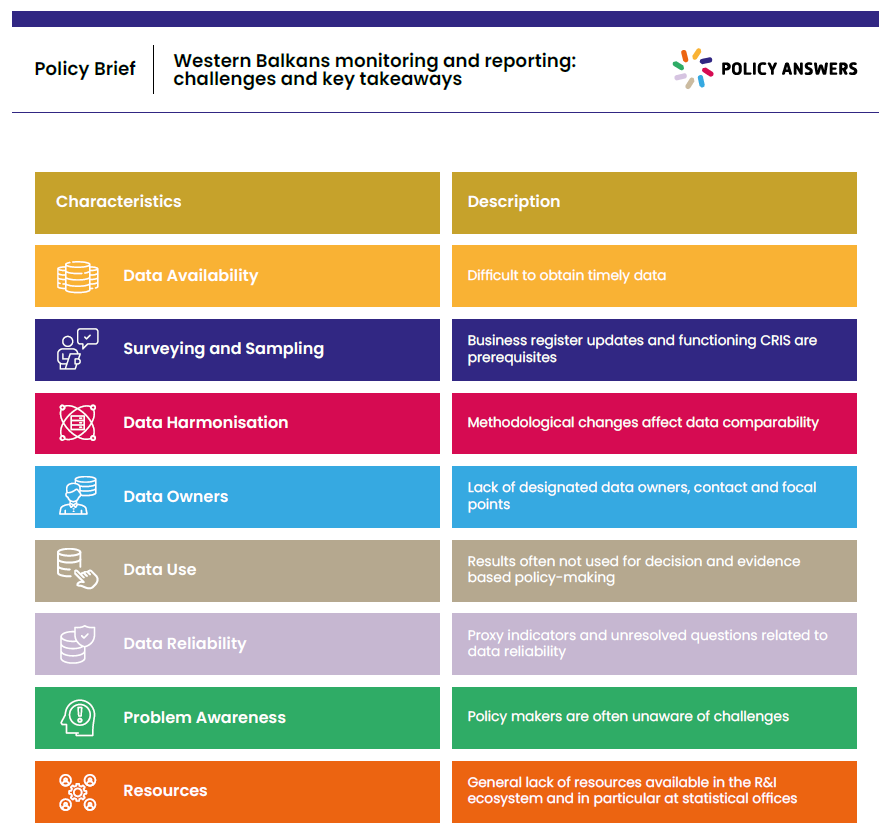This POLICY ANSWERS Policy Brief highlights the significant challenges faced in collecting, analysing, and utilising data for monitoring of research and innovation (R&I) in the Western Balkans. The brief underscores that the region struggles with the timely availability of reliable statistics, the absence of established data owners or focal points and issues surrounding data harmonisation and comparability. These obstacles hinder effective evidence-based policymaking, as statistical gaps and the use of proxy indicators limit the ability of policymakers to assess progress, benchmark against EU standards and manage the alignment of Western Balkan economies with European Research Area (ERA) requirements.
To address these issues, we point out in this document that robust monitoring and reporting mechanisms are essential for supporting policy dialogue and capacity building among stakeholders in the region. The POLICY ANSWERS project engages in regular evaluation activities, drawing on indicator frameworks like the European Innovation Scoreboard and ERA performance indicators to provide comparative evidence. However, persistent challenges remain with data availability, especially for composite indicators, and with harmonising approaches due to diverse methodologies used in the different economies. The lack of systematic data usage for decision-making – often limited to reporting purposes – prevents the translation of monitoring results into targeted policy measures and long-term strategic development.
The brief provides comprehensive recommendations for Ministries, national statistical offices and research-performing organisations, encouraging capacity-building, digitalisation and regional cooperation to strengthen data systems. It advocates for the adoption of international standards for data collection, the empowerment of statistical offices and fostering open data policies to improve transparency and access. Moreover, it stresses the importance of establishing functional current research information systems (CRIS), enhancing communication among stakeholders and committing to long-term cooperation efforts to build a resilient framework that supports evidence-based policymaking and integrated participation in European research and innovation programmes.

